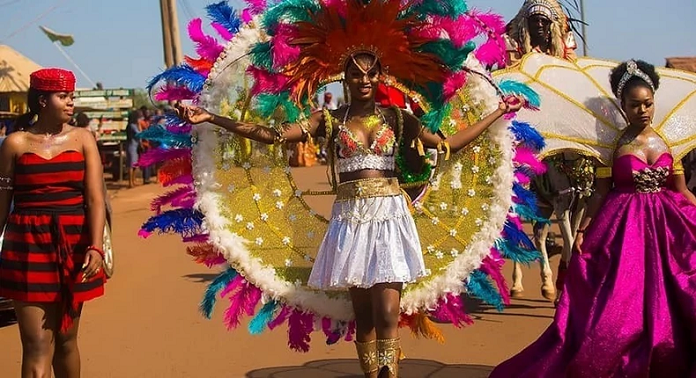The major tribes in Benue State include Tiv, Idoma, Igede, Akweya, Jukun, Etulo, Abakpa, Agatu, and Nyifon. Benue State is located in Nigeria’s North-Central region and is known for its rich cultural heritage and diverse ethnic groups.
The Tiv people are known for their agricultural prowess, while the Idoma and Igede are known for their rich history, festivals, and traditional practices. The Jukun people, on the other hand, have a rich cultural heritage, including unique dressing and festivals. The Abakpa people, Agatu, and Nyifon are primarily farmers and known for their iron smelting and blacksmithing skills. The estimated number of tribes in Benue State is over 20. This article will tell you more about them.
List of Tribes in Benue State
Below is a list of some of the significant tribes in Benue State.
- Tiv
- Idoma
- Igede
- Etulo
- Abakwa
- Jukun
- Gatam
- Ufia
- Utonkon
- Alago
- Agbo
- Akurmi
- Fulani
- Igedde
- Iyala
- Mbada
- Nzorov
- Oju
- Okpokwu
- Ijigban
- Igbo
What Is Benue State Known For?
Benue state is known for the following:
Food Basket of the Nation: Benue State is often referred to as the “Food Basket of the Nation” due to its significant agricultural productivity. The state is known for its vast arable land and favorable climate for the cultivation of crops such as yam, rice, cassava, and soybeans.

Rich Cultural Heritage: The state is home to various ethnic groups, such as the Tiv, Idoma, and Igede, each with their unique cultural practices, language, and traditions. Benue State celebrates cultural festivals like the Tiv Kwagh-Hir and Swange dance, which attract visitors from within and outside the state.
Ortom Yam: Benue State is renowned for the production of high-quality yams. “Ortom Yam” is a special type of yam named after the state’s governor, Samuel Ortom. The state is known for hosting the annual Benue Yam Festival, showcasing various yam varieties, and promoting local agriculture.
Breathtaking Natural Attractions: The state boasts several natural attractions, including the Makurdi Riverfront, which offers splendid views of the Benue River. The Confluence of Benue and Katsina-Ala rivers at Katsina-Ala is also a notable attraction. Benue State is also home to the scenic Ikwe Wildlife Park, which houses a variety of wildlife and provides opportunities for ecotourism.
Influential Personalities: Benue State has produced notable personalities across various fields, including the entertainment industry, politics, and academia. Some of these personalities include Chris Morgan, Idibia, Susan Peters, Terry G, Meg Otanwa, renowned writer Gabriel Igwebe and prominent politicians such as former Senate President David Mark.
Rivers and Waterfalls: The state is rich in water resources, with several rivers and waterfalls. The famous Gboko Waterfall, Ushongo Hill Waterfall, and Tyowanye Waterfall are must-visit attractions in the state.
Tiv Music and Dance: The Tiv people of Benue State have a unique form of music and dance that is widely known and celebrated. They also have traditional instruments like the akyaaha (flute), ingi (thumb piano), and adem (gong) commonly used in their performances.
Is Benue State a Northern State?
Yes, Benue State is considered a northern state in Nigeria. It is located in the middle belt region of the country, which is geographically close to the northern part of Nigeria. The middle belt is a region that lies between the predominantly Muslim north and the Christian-dominated south.
While the classification of Benue State as a northern state is primarily based on its geographical location, it is important to note that the state has a diverse population with a mix of different ethnic and religious groups. The Tiv people are the largest ethnic group, followed by other groups such as the Idoma, Igede, and others.
Politically, Benue State is part of the North-Central geopolitical zone of Nigeria. However, due to its location in the middle belt, it is sometimes considered a transition zone between the north and south of the country, as it shares some cultural and historical characteristics with both regions.
